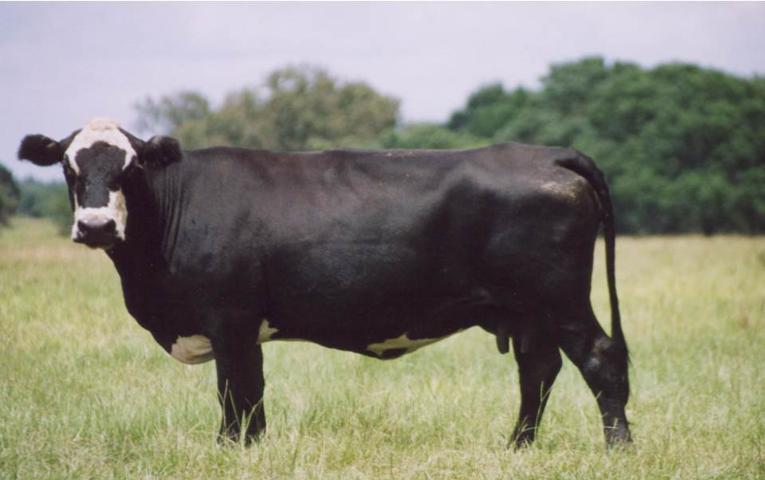
Photo credit, John Arthington
The largest expense of beef cow production is providing them with adequate nutrition. In North Florida, providing adequate nutrition is usually easy during the warm months with long daylight hours. This is because our pasture grasses grow very fast during these warm long days. As days get shorter and the weather cools and dries down, forage in pastures can become too short to maintain cattle nutrition by itself. Determining when cattle are not receiving enough nutrition for adequate production can be tricky. One tool that cattle producers can use to help them assess whether or not their cattle are getting adequate nutrition is by a process called Body Condition Scoring (BCS).
Body Condition Scoring involves looking at the cattle individually and assigning them a score based on their fleshiness. A cow’s BCS is assessed by looking at fat deposition over the shoulder blade, down the spine, around the tail head, over the ribs and in the brisket. The assessor then compares the individual cow to a standard established by experts from across the nation. Scores range from 1 to 9 with 4, 5 and 6 considered optimal. All scores above those thresholds means cattle are receiving more nutrition than they need which at times can cause cows to become infertile. BCS scores below 4 indicate a cow is not getting enough nutritional support and that her pasture grass needs to be supplemented by stored forage (hay or silage) and possibly energy and protein supplements provided as a dry or liquid feed. While experienced cattle producers can look at a group of cows and determine if they are getting enough nutrition, this methodical system of BCS scoring provides a good tool to standardize the process.
The result of implementing this tool on beef cattle ranches is cows are maintained in optimal condition so they perform as we expect, having a healthy calf each year. By not underfeeding, cattle are fertile enough to raise a large healthy calf year after year. By not overfeeding, ranchers save money on cows that would be too fat and remain able to continue to supply an affordable, safe, and nutritious beef product to consumers.
Contact your local UF-IFAS Extension Office for information on BCS scoring cattle.
For more information including photos of assessing body score conditions click here.
If you have any pasture or livestock questions relating to Levy County please feel free to contact Ed Jennings, UF/IFAS Extension Director for Levy County at (352) 486-5131 or by email at edjennin@ufl.edu.
 0
0
